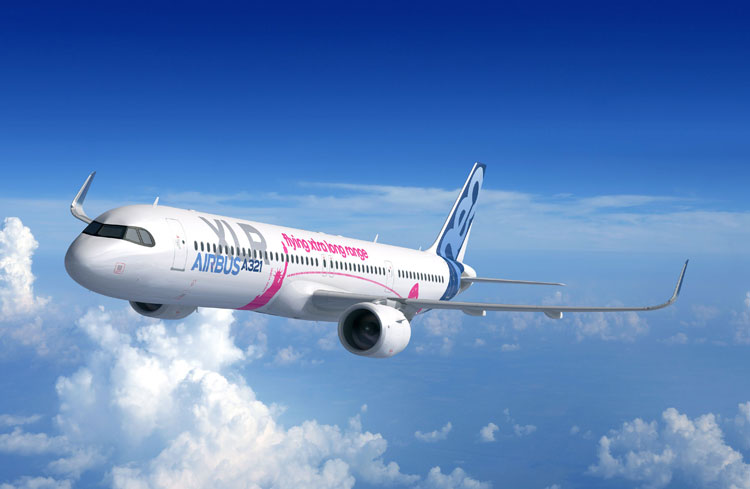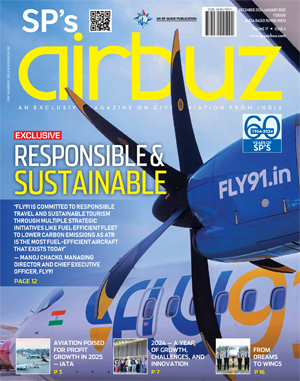FIA Connect

Aviation leaders connect at FIA to discuss the pandemic at hand
From travel confidence, to technological initiatives needed in the industry, experts highlighted the grave situation that has come due to the pandemic and pointed out the steps that can be taken going forward.

Industry experts gathered virtually for the first ever online Farnborough International Airshow 2020. They discussed the most necessary conversation about the situation at hand due to the global pandemic and what can the industry do to pave a better way ahead. Some of the crucial questions discussed included how bad will this crisis be, when will it start getting better, what will the dreaded "new normal" look like, and what steps should the industry take to get there? The experts also agreed that the industry needs to dig in for a recovery more challenging than other crises dealt, including the first Gulf War, 9/11, the financial crisis of 2008, and the SARS epidemic. The grim confluence of steep economic downturn, public health emergency, government travel restrictions, and widespread fear of travel and human interaction itself was described as the “perfect storm”.
The Roland Berger consultancy envisions no prospect of airline capacity returning to 2019 levels until 2024. From now through 2021, it sees a “transition” phase during which it advocates companies should address their strategy with a dispassionate reassessment, followed in short order by course correction. The Roland Berger team said it consciously chose to describe that phase as a transition rather than a recovery, which it does not consider a given in the short term. In its view, this period will see weak new aircraft sales and, potentially, no new aircraft brought to market before the mid-2030s.
A distinct focus was observed on the UK as the country’s aerospace industry has the task of reinventing itself in response to not just COVID but also its BREXIT departure from the European Union. UK industry group ADS (Aerospace, Defence, Security & Space) insisted that the government must provide tangible, long-term support for a sector facing a defining and still potentially damaging moment in its illustrious history.
However, during the FIA Connect there were some rather positive outlooks also expressed.
Many of the webinar sessions addressed the potential for profound change right across the aerospace supply chain, with some speakers referencing disruption to the globalisation trend, and seeing production moving closer to home. Some of them also expressed the possibility of a potential shift in the balance of power.
A distinct focus was observed on the UK as the country’s aerospace industry has the task of reinventing itself in response to not just COVID but also its BREXIT departure from the European Union. UK industry group ADS (Aerospace, Defence, Security & Space) insisted that the government must provide tangible, long-term support for a sector facing a defining and still potentially damaging moment in its illustrious history.
@Boeing's Mike Delaney sets out their three layers of protection to ensure safe travel during #COVID19:
— Farnborough Airshow (@FIAFarnborough) July 20, 2020
??Protect the whole journey for passengers & crew
??Clean airplanes
??Reducing transmission within airplane #FIAConnect pic.twitter.com/qloSA5xCht
Mike Delaney, Vice President & Confident Travel Initiative Leader of Boeing Commerical talked about the manufacturer’s efforts to deal with this pandemic. “We laid out three layers of protection, the first being how to protect the whole journey because the disease transmission can happen not just on the airplane but anywhere in the journey. We've then reached out to airports and airlines suppliers to understand how do we government agencies how do we think about the risk in the travel journey as this needs to be taken as an industry,” he said.
First and foremost, to present the airplane as a clean environment, we've developed a clean airplane program, with our partners, which is similar to the maintenance program for the airplane engine. We have to assume that there are going to be index passengers on the airplane who have corona since so many people are asymptomatic as well. So how do we use the capabilities of the airplane to minimise the transmission in the flight phase of the airplane and that requires detailed modeling of the environmental control system or the air conditioning system on the airplane, the geometry, the seat backs and the good news is that the airplane actually has an extremely capable system on it for design purposes of air quality, velocity and gradients that is very good at minimising the transmission of COVID 19. Couple that, with the filtration system and the fresh air system that comes in, the air in the cabin change over rates and we can then minimise the transmission and apply different design solutions like including masks and sanitizers and operational procedures so we're thinking about this as a multi-layer approach. We are also thinking over time zones, first being the near future applications and how will it impact the airplane functioning and how effective is it; second about when the travel capacity increases and third about the long term impact of any other future crisis that might occur. We're working with governments and agencies airlines supply chain because this has to be dealt with as an industry, Delaney highlighted.
Sustainability i.e. the challenge to make aviation carbon-free was frequently underlined during the sessions as a platform for growth, holding opportunities for companies to advance technology supported by significant amounts of government financial support. Panelists also discussed about replacing jet - a fuel with electricity generated by renewable means or hydrogen as a welcome foundation for aviation’s future between now and 2050.
Roland Berger also expects investment in the automation field to continue despite COVID’s squeeze of cash. Increased automation of aircraft, leading along a spectrum to increased adoption of fully autonomous flight, appears an important magnet for investment and an opportunity for companies to get a competitive edge.
However, sustainability is likely to see a swifter investment than automation.
Sustainability, a challenge in focus
Sustainability i.e. the challenge to make aviation carbon-free was frequently underlined during the sessions as a platform for growth, holding opportunities for companies to advance technology supported by significant amounts of government financial support. Panelists also discussed about replacing jet - a fuel with electricity generated by renewable means or hydrogen as a welcome foundation for aviation’s future between now and 2050.
Discussions mentioned that commercial aviation must embrace sustainability to help itself recover from gravest crisis in its history.
Industry leaders including Airbus CEO Guillaume Faury, said adaption of aviation business models would be fundamental to their survival: “This is the gravest crisis in commercial aviation. Airbus needs to adapt to a crisis that was not planned. Airbus has adapted, reorganised and resized to provide stability for the next two years.”
Panel sessions also pointed out that investment in technology would deliver greater sustainability. UK Transport secretary Grant Shapps said the British government’s Jet Zero bill, announced as part of a commitment to achieve zero carbon by 2050 commitment, could place the UK as a global leader in sustainable flight.“The reason why I think we’re in a unique position potentially for leadership through the jet zero Council on all of this is we’re the only major economy right now is legislated by law for zero, carbon by 2050,” he added.





